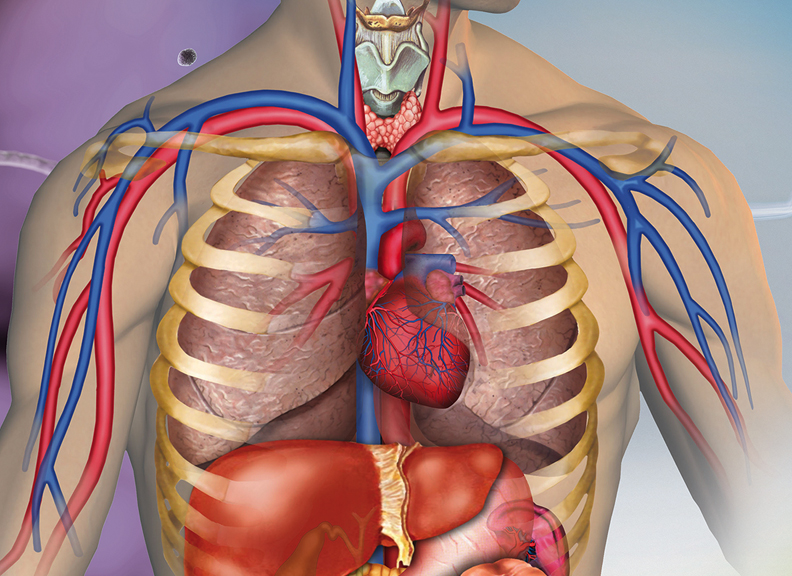Research
Cognitive science
Unlocking the mysteries of the mind
Why do we remember what we remember and forget what we forget? How do we form judgements? How did you decide to take this path rather than the other? How are our choices affected by others? What are the biases that shape our cognition?
We investigate these questions in experiments, surveys and simulations, and apply rigorous behavioural analysis and mathematical modelling. Our work looks at how people behave in a range of contexts, from simple decision tasks, to complex cognitive and social environments.
Research laboratories
Cognitive scientists work across the following laboratories:
- Attention and Human Behaviour Laboratory
-
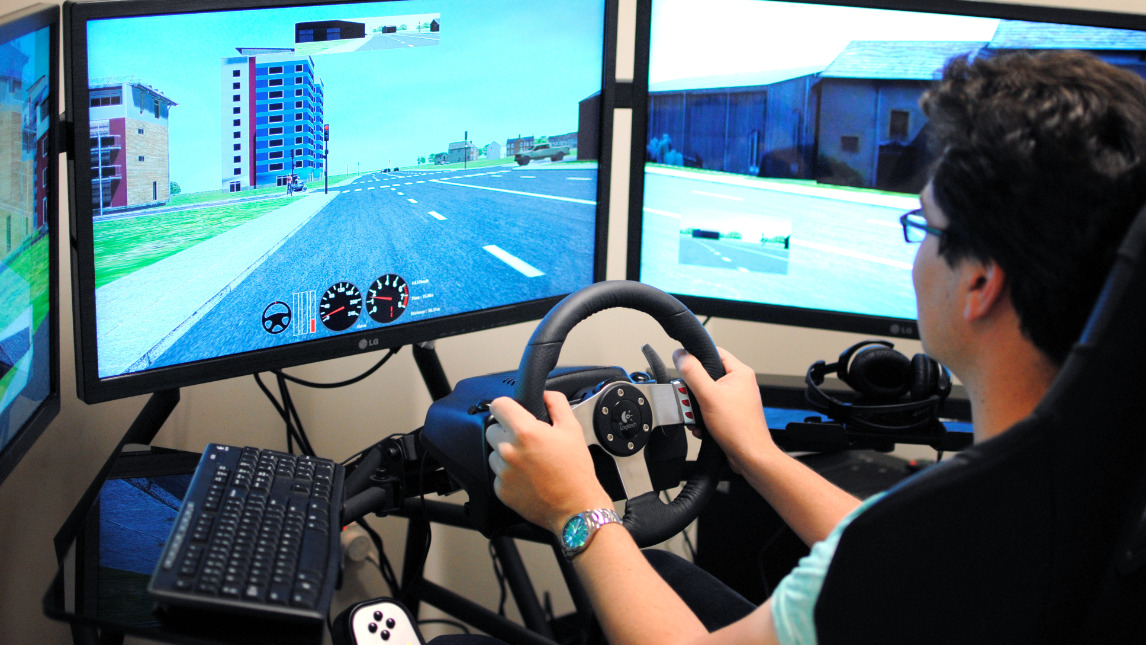
Our research is at the interface between key human cognitive abilities, such as attention and multitasking, and human behaviours across a variety of situations.
Over a century of 'basic' experimental research has taught us a lot about human cognition and perception, as well as their underlying neural mechanisms. However, we know much less about how these abilities differ across individuals and groups, or how these abilities influence everyday behaviours, like driving, or performance in specialised jobs, like the military or air-traffic control.
The goal of our work is to answer these questions by breaking through traditional divides between basic and applied research, and to focus on building a reciprocal relationship in which basic research can guide practical questions, and practical outcomes can give new insights into basic processes.
Attention and Human Behaviour LaboratoryContact us
- Professor Troy Visser (Lab director)
- Centre for the Advancement of Research on Emotion (CARE)
-
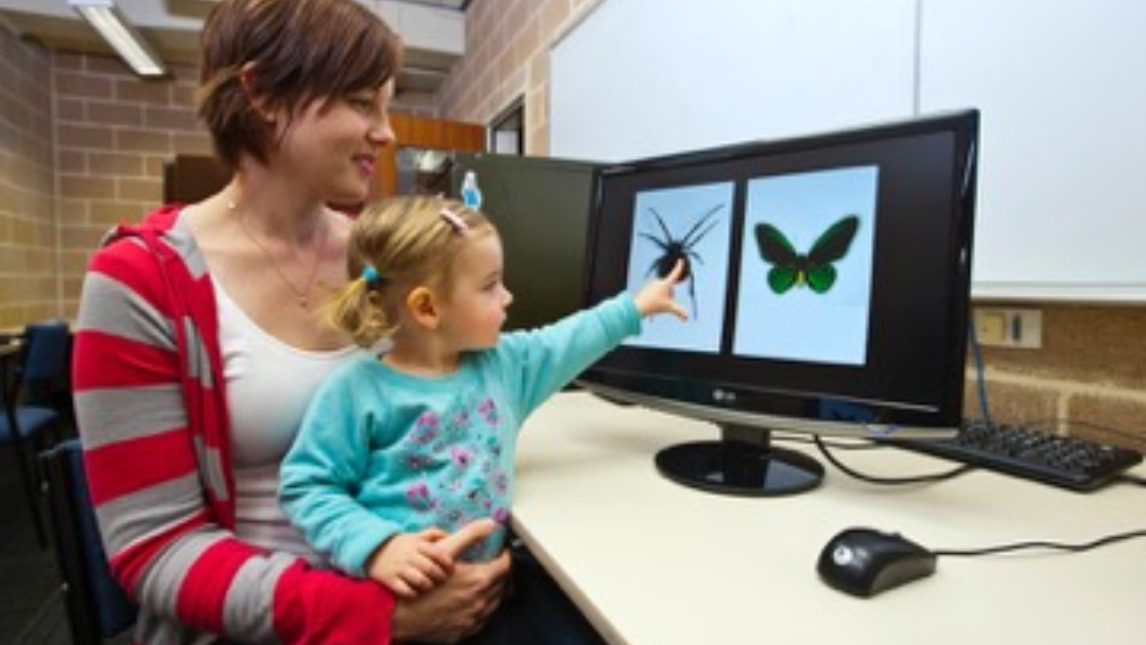
Clinical theorists have attributed emotional disorders to cognitive idiosyncrasies, while cognitive theorists have developed models which suggest emotional states will be associated with pervasive information processing biases throughout the cognitive system.
Both clinical and cognitive models of emotional disorders predict the existence of processing biases favouring emotionally congruent information in attention, interpretation, and expectancies.
Researchers at the Elizabeth Rutherford Memorial Centre for the Advancement of Research on Emotion (CARE) use cognitive-experimental paradigms to test hypotheses arising from these models combining a focus on cognitive mechanisms with inter-disciplinary research to advance our understanding of emotion.
Key objectives and focus areas of the centre include:
- Bringing together world leaders in different research areas to establish new innovations in the understanding of emotion.
- Investigating patterns of selective information processing (or cognitive biases) that may underpin mental health problems and resilience, and examining the causal contribution of these biases to anxiety, worry, and adaptive functioning in the face of adversity.
- Evaluating recent developments in cognitive bias modification (CBM) techniques to contribute to the emotional well-being of the Australian community.
Contact us
- Director: Associate Professor Lies Notebaert
- Academic Staff: Dr Ben Grafton, Emeritus Professor Colin MacLeod
- Individual Differences Laboratory
-
Research in the Individual Differences Laboratory is devoted primarily to the topics of cognitive abilities, including financial literacy, as well as personality, especially narcissism. Recent work undertaken with honours and postgraduate students has attempted to understand the nature of individual differences in final literacy and face processing abilities. Additionally, work on the self-estimation of abilities and grandiose narcissism has been undertaken.
Contact us

- Social Influence Laboratory
-
The greatest influence om people's thoughts, emotions and behaviour is other people. Research in the Social Influence Laboratory examines the ways in which people are influenced by other people, groups, institutions and society. We use a range of methods to investigate human social influence, including laboratory experiments, computational simulations and social network analysis.
Current research topics include:
- Informational Influence: How should information be designed to maximise influence and transmission?
- Interpersonal Influence: How do people create shared understandings during social interaction?
- Group Influence: What are the dynamics of decision-making groups, and how can group performance be optimised?
- Cultural Influence: What factors drive cultural (including language) evolution?
- Malign Influence: How can we curb the spread of misinformation and promote a healthy information environment?
Contact us
- Associate Professor Nicolas Fay
More information
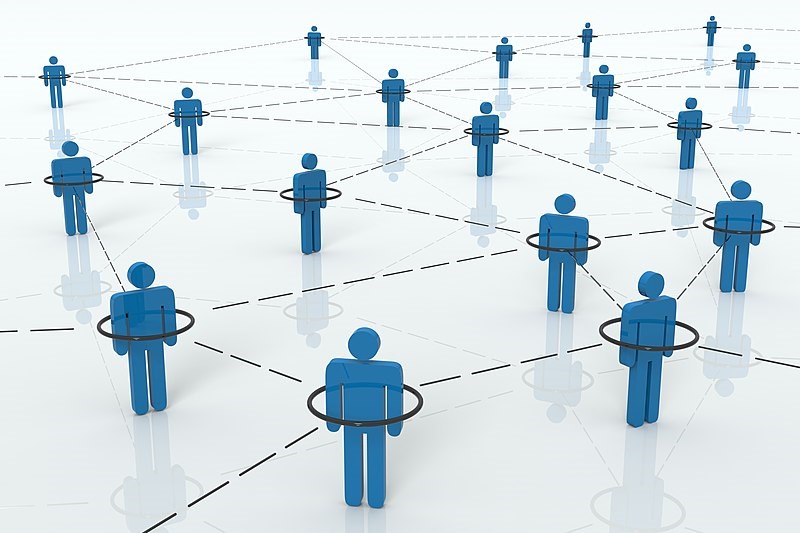
- Human Factors and Applied Cognition (HUFAC) Laboratory
-
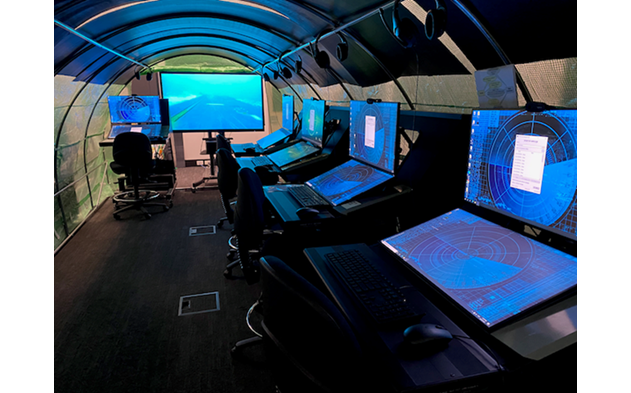
The Human Factors and Applied Cognition (HUFAC) Laboratory conducts theory-driven research to understand the cognitive mechanisms that underlie human performance in safety-critical work contexts. To achieve this we conduct both basic experimental psychology research and research using simulations of air traffic control, submarine track management, unmanned vehicle control, and driving.
The core aim is to strengthen the link between psychological science and practice by publishing in world-class journals, and transferring knowledge and skills as directly as possible back to industry.
Core questions addressed in the HUFAC Laboratory include:
- How can task automation be designed to maximise operator and system efficiency/safety?
- How do individuals remember to perform delayed intentions when multi-tasking (prospective memory), and how can the negative impact of task interruptions be minimised?
- What are the mechanisms by which individuals develop understanding the current state of their tasks and anticipate the future (situation awareness), and to what extent can this be trained?
Funding
The HUFAC Laboratory has received a significant amount of funding from bodies such as:
- Australian Research Council
- Air Services Australia
- Defence Science and Technology Group
- Defence Research and Development (Canada)
- Neurotrauma Research Program
- Department of Airforce (Asian Office of Aerospace Research and Development)
Contact us
- Interpersonal Dynamics Laboratory
-
Research in the Interpersonal Dynamics Lab is concerned with the fundamental processes by which people coordinate their social lives. We examine how cognition and behaviour unfold during real-time social interactions using a range of experimental methods and techniques (e.g., motion tracking, virtual reality, modelling). A prominent focus is on the interplay between synchronised movement and the effectiveness of social exchange and collective behaviour.
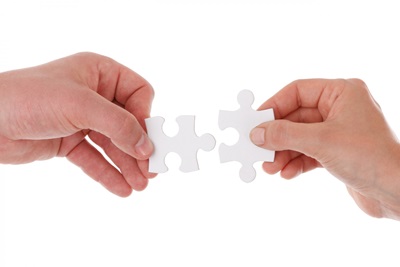
Current research topics include:
- How do people coordinate their behaviours, thoughts and feelings with others?
- What impact does interpersonal coordination have on our social relationships?
- What influence do differences in mental health have on the capacity to coordinate with others?
- How do team members best coordinate their efforts to ensure effective collective performance?
- When do differences between competitive and cooperative motives shape group dynamics and productivity?
Contact Us
- Memory and Decision Making Laboratory
-
We use behavioural methods and computational modelling to understand how people remember their past experiences and how people draw on those experiences to make choices and plan ahead. We are interested in individual cognition and how people form judgements and make decisions as groups.
Core questions addressed by our research are:
- How is episodic memory structured and how does that structuring feed in to our ability to plan and predict?
- How does working memory – our ability to maintain information in the face of distraction – work and how is it related to episodic memory?
- How do we make decisions quickly and accurately?
- What is the role of reward in memory and decision-making? To what extent is reward determined by comparisons to others?
Contact us
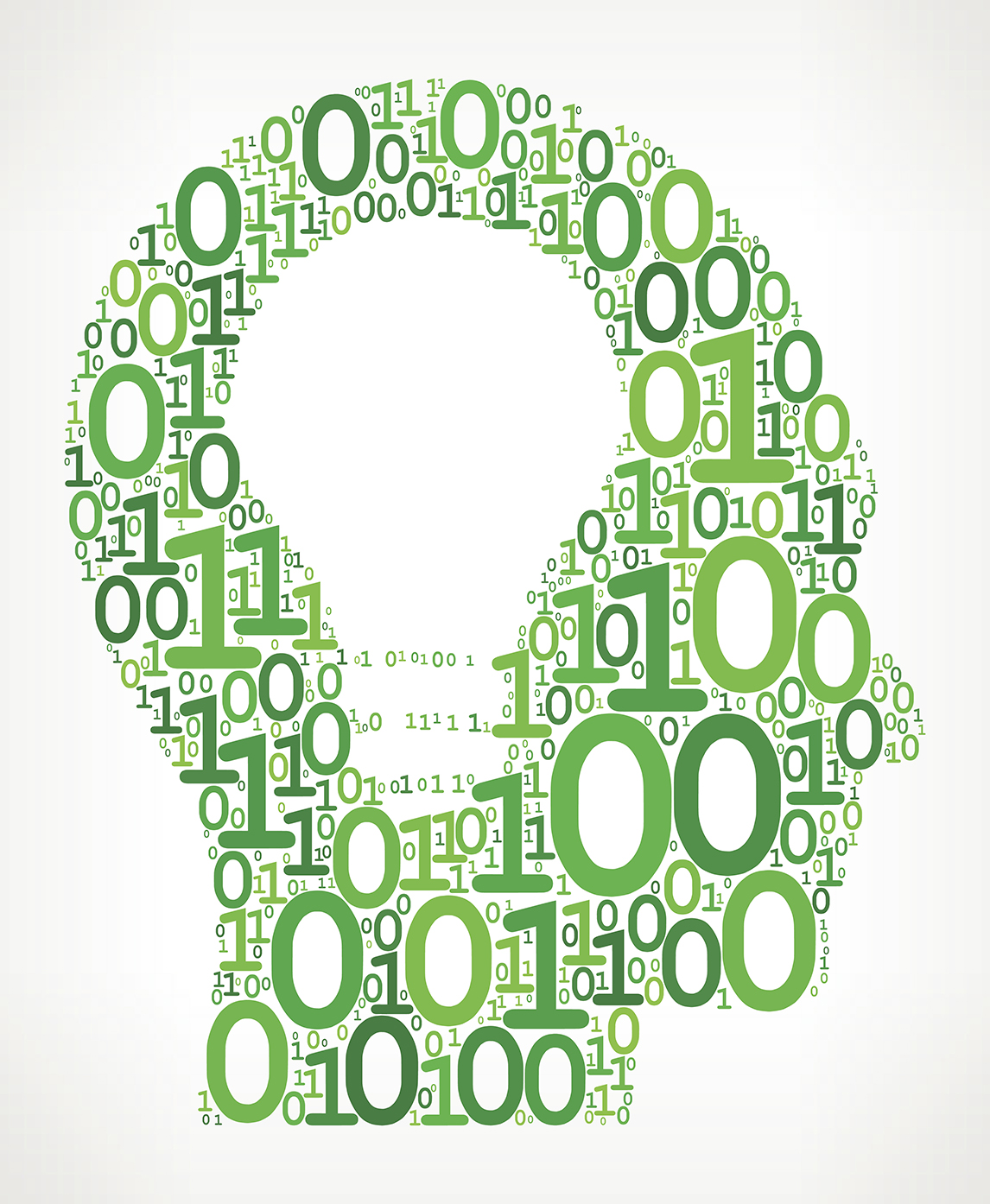
- Memory and Cognition Laboratory
-
Research in the Memory and Cognition Laboratory investigates human memory and reasoning, using mainly behavioural experimentation.
The main topic of interest is misinformation: How does incorrect information affect memory, reasoning and decision-making even after it has been corrected? What individual (cognitive, social, affective) factors influence people’s misinformation susceptibility? What aspects of the information environment play a role? How can effective interventions be designed?
Contact us
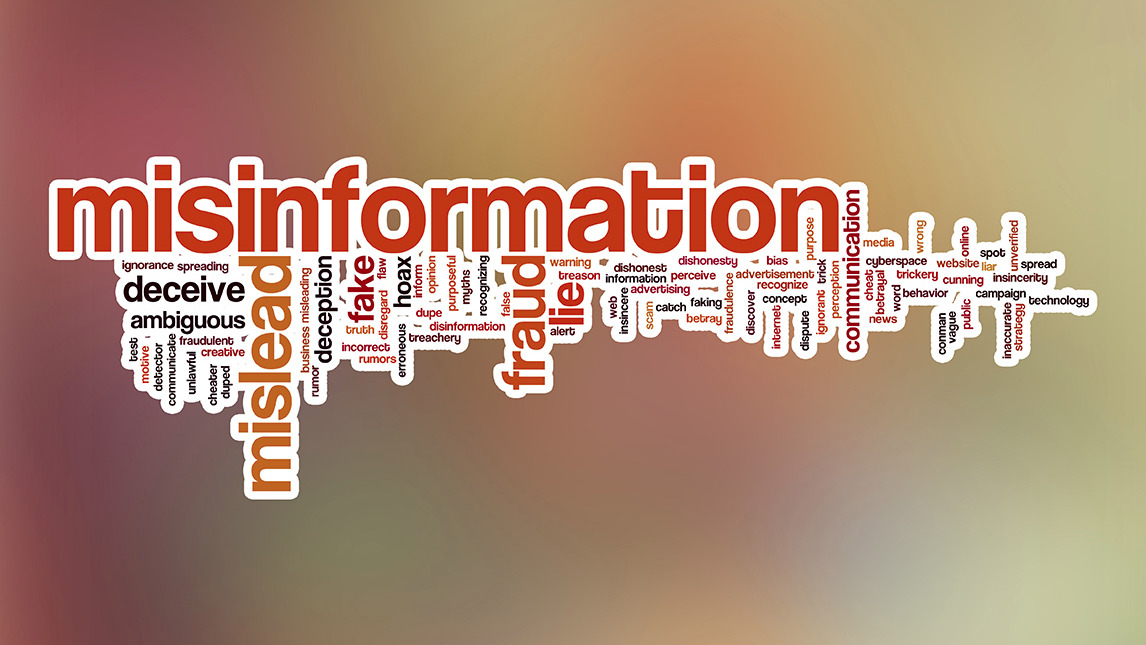
- Working Memory Laboratory
-
The Working Memory Laboratory investigates the factors underlying individual and developmental differences in working memory and the relationship between working memory and higher-level thinking and educational achievement. We are also interested in the social and emotional wellbeing of children and how this relates to cognitive and educational achievement.
Current research areas include:
The developmental trajectory of working memory in children, including individual working memory profiles, and how these relate to learning and educational outcomes in both typical and atypical development.
Visual and verbal short-term consolidation in both adults and children, including the developmental trajectory of this process, and how it relates to working memory and educational achievement.

Evaluating the effectiveness of working memory training programs.
The relationship between sleep and cognitive outcomes in children and young people.
The relationship between educational and mental health outcomes for Western Australian children and the developmental pathways to educational achievement and wellbeing in Western Australian children.
Researchers in the Working Memory Laboratory have the opportunity to be involved in INDiKids, a research program with a central goal of understanding Individual Neurocognitive Development in Kids and how this contributes to developmental change in cognitive, socioemotional, and educational abilities. INDiKids brings together a group of researchers from the School of Psychological Science interested in the neurocognitive basis of typical development and developmental disorders. INDiKids hosts a children’s research program each year in which children attend UWA to take part in a range of research studies embedded within an action-packed day of games and activities! If you are interested in your child being involved, please contact us.
Contact us
- Person Perception Lab
-
Our research program has significantly contributed to understanding which perceptual, cognitive and neural mechanisms are crucial for person perception.
This often involves studying faces, as they provide information about the identity, age, sex, race, attractiveness and mood of other people, but also involves studying the perception of bodies and voices.
Methodologically, the lab uses a variety of psychophysical, behavioural, genetic modelling, and cognitive neuroimaging techniques.
The research is interdisciplinary, linking many aspects of psychology (e.g., social, clinical) with other disciplines such as computer science (e.g., automated recognition), law (e.g., eyewitness testimony) and neurobiology (e.g., comparative models).

Research Questions:
- Why can't some children and adult recognise facial identity?
- Can training improve person perception skills?
- How do people perceive, interpret and respond to facial expressions?
- How do people respond to virtual humans?
- How does neurodiversity or brain injury affect person perception?
- How does person perception develop throughout childhood, and across the lifespan?
- How do people form facial expressions of trustworthiness and approachability and are these first impressions primarily shaped by genes or experience?
- How can we reliably measure individual differences in face perception ability, and what is this variation in ability linked with?
- What is the role of visual attention in person perception?
Prosopagnosia Research
Interested in participating in research?
Our current understanding of prosopagnosia is only limited, and further research is needed to clarify the nature of this rare condition. If you or any of your family members are experiencing face recognition difficulties, and if you're interested in participating in research, please register with us.Australian Prosopagnosia Register
For more information about prosopagnosia and our current research see below:
Participant Information and Consent Form (PDF 68KB)
- Healthcare Human Factors Laboratory
-
We conduct human factors research with a focus on healthcare settings. We apply theories and methodologies from human factors psychology to understand how healthcare professionals (e.g. doctors, nurses, hospital administrators, etc.) carry out their jobs in their work environment (e.g. operating theatres, hospital wards, etc.), and identify human-centred solutions to support/enhance their work performance. The aim is to help healthcare professionals perform to their best abilities efficiently and safely.
Our research is relevant to, and draws on knowledge from, applied cognition, perception and attention, and I/O psychology. That’s why you see our Lab spanning across more than one research area in the School. We use methodology ranging from laboratory-based experiments, clinical simulations, to observational studies.
Current interests in the lab:

- Designing tools to help clinicians multitask - Clinicians often have to multitask (e.g. calculating medication dosage for Patient A and paying attention to Patient B’s decreasing heart rate), we are interested in finding out clinicians’ performance bottleneck in such situations and design appropriate technology to help them manage their attention effectively.
- Understanding clinicians’ attention - We are interested in finding out whether clinicians from different specialisation would have different attentional capabilities. If so, what would this tell us about human attention?
- Human factors training in hospitals - Hospitals in WA have started providing human factors training to their staff (including doctors, nurses, allied health, etc.) and we are interested in finding ways to measure the impact of human factors training on work performance. In this line of work, we collaborate with Dr Thy Do, Consultant Anaesthetist, at Royal Perth Hospital and Operational Director of the NEXUS Human Factors Training Program.
Contact Us
- Perception, Emotion, Cognition, Ageing, & Neuroscience (PECAN) Laboratory
-
In the PECAN lab, we investigate questions at the intersection of Perception, Emotion, Cognition, Ageing, and Neuroscience (PECAN). And we’re “nuts” for science!
At any given moment, the amount of information bombarding our senses is more than we can possibly process. This means that we can only pay attention to and remember small slices of our environment. How do we decide what to prioritise?

Our emotional reactions are one piece of the puzzle. We often prioritise emotionally powerful information so much that it can keep us from seeing and remembering other things (even other things that we look right at).
Age is another piece of the puzzle. As we grow older, our attention and memory processes change, as does the role of our emotions.
We use behavioural, eye tracking, and neuroscience techniques to study emotion-cognition interactions, and how these are altered by individual differences such as age.
Major research questions in our lab include:
How are emotional stimuli prioritised in our attention and memory and how does this affect our processing of other stimuli in the environment?
Are there ways to heighten or diminish emotion’s influence on cognitive processing?
What drives the age-related positivity effect, in which older adults prioritise more positive and less negative information compared to younger adults?
How do arousal and selective attention change with age and Alzheimer’s disease?
Why and how do certain individuals attend and remember certain stimuli more than others?
Do ways that we interact with information alter how we attend and remember it?
Lab director
- Western Australia Centre for Road Safety Research (WACRSR) Laboratory
-

The WACRSR has been established to conduct research across the Safe System approach. The cornerstones of the Safe System Approach are — safe roads and roadsides, safe road use, safe speeds, safe vehicles and safe post-crash care.
This approach represents a paradigm shift in road safety and takes a holistic view of the road transport system and the interactions of its various elements to create a road transport system in which human error does not result in death or serious injury.
At WACRSR, our research focuses on road safety including: driver behaviour, vehicle safety, road and other infrastructure safety, speed, general causes of road crashes and trauma, new, emerging and existing safety solutions to prevent and/or reduce road trauma, contributing factors to injury and death in road crashes, injury prevention in road crashes and post-crash.
Contact Us
- Learning, Individual Development, and Life (LIDL) Lab
-
LIDL Lab investigates individual differences in human potential and achievement. We use behaviour, psychophysics, and neurophysiology to understand why some people are more efficient learners, and how this relates to mental health and life outcomes.
We investigation low- and high-level learning (low-level = perceptual or statistical learning, and attention; high-level = reading and academic achievement). For example, dyslexia—a specific developmental learning difficulty with reading acquisition—is linked with a different cognitive and perceptual capacities, e.g., for recognising repeated tones, as well as atypical cerebral lateralisation (e.g., the right hemisphere of the brain is more likely to be involved in language processing, whereas this is the left in most people). Dyslexia is also linked with poorer academic achievement, as well as anxiety and poorer self-esteem (i.e., social and emotional challenges).

Here are some example research questions we pursue:
- Why does attention and perception relate to reading abilities? For this we use paradigms like the attentional blink and perceptual anchoring (behavioural psychophysics)
- How does cerebral lateralisation of verbal and non-verbal information processing relate to real-world behaviours like reading and educational outcomes? For this we use EEG and functional transcranial Doppler ultrasound.
- Do mental health traits and coping-strategies influence educational engagement (e.g., university retention) for poor readers? For this we use mixed methods: surveys, behavioural tasks, and interviews.
These projects inform our theoretical understanding of how the mind and brain adapt to the environment, which in turn has implications for education and clinical practice.
The aim of LIDL Lab is to understand individual differences with the goal to improve outcomes, so we can all pursue our potential, living healthy and fulfilling lives.
 Researchers in LIDL Lab can be involved in INDiKids, a research program with a central goal of understanding Individual Neurocognitive Development in Kids and how this contributes to developmental change in cognitive, socioemotional, and educational abilities. INDiKids brings together a group of researchers from the School of Psychological Science interested in the neurocognitive basis of typical development and developmental disorders. INDiKids hosts a children’s research program each year in which children attend UWA to take part in a range of research studies embedded within an action-packed day of games and activities! If you are interested in your child being involved, please contact us.
Researchers in LIDL Lab can be involved in INDiKids, a research program with a central goal of understanding Individual Neurocognitive Development in Kids and how this contributes to developmental change in cognitive, socioemotional, and educational abilities. INDiKids brings together a group of researchers from the School of Psychological Science interested in the neurocognitive basis of typical development and developmental disorders. INDiKids hosts a children’s research program each year in which children attend UWA to take part in a range of research studies embedded within an action-packed day of games and activities! If you are interested in your child being involved, please contact us.
Contact Us









